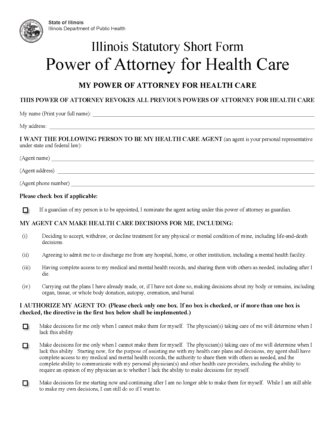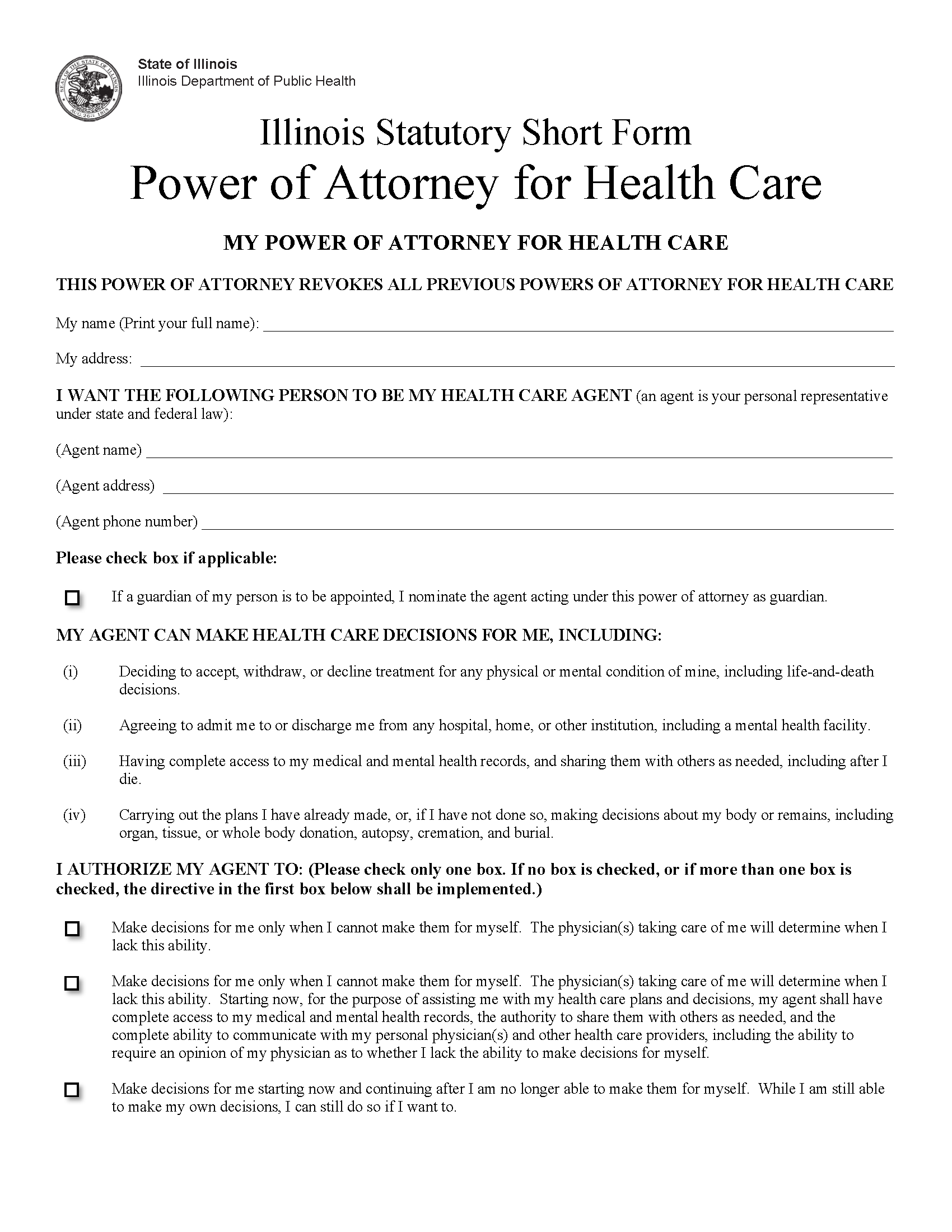Signing Requirements
One witness must verify the principal’s signature and sign the document.[1]
The signing witness must not be the agent or successor agent, related to the principal or agent, an owner or operator of a health care facility where the principal is treated, the principal’s health care provider, or a relative of their provider.
Power of Attorney (Preview)
Legal Definition
“Health care agency” means an agency governing any type of health care, anatomical gift, autopsy or disposition of remains for and on behalf of a patient and refers, in either hard copy or electronic format, to the power of attorney or other written instrument defining the agency or the agency, itself, as appropriate to the context.[2]
Revocation
The principal may revoke this power of attorney at any time by[3]:
- Destroying the document.
- Executing a written revocation.
- Expressing the intent to revoke orally or in any other manner in the presence of a witness.
- deleting the document (if the POA exists electronically).

